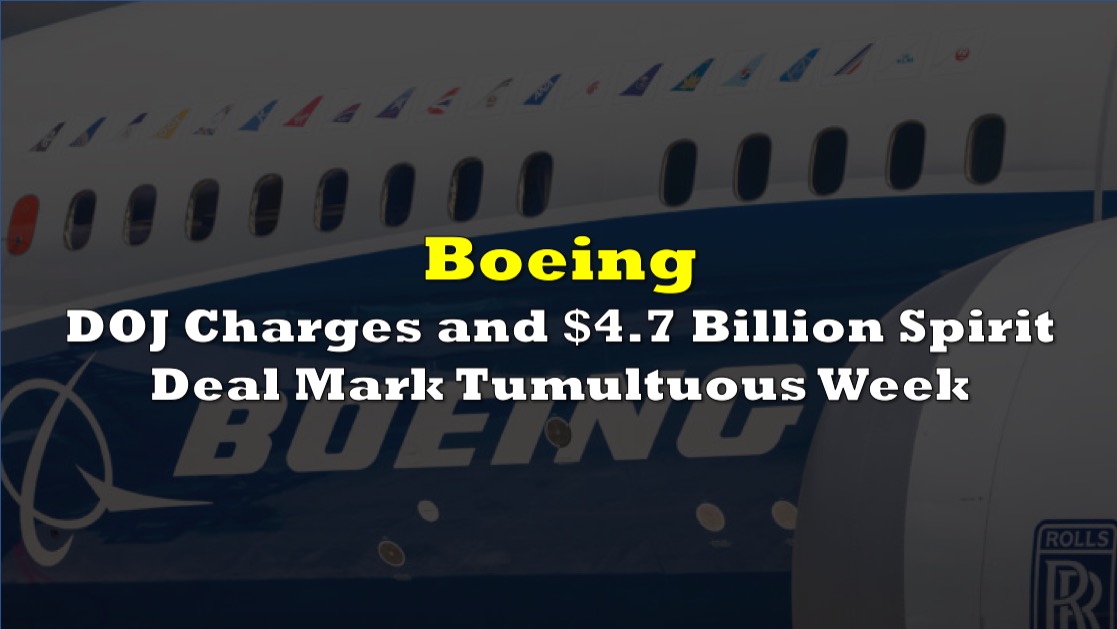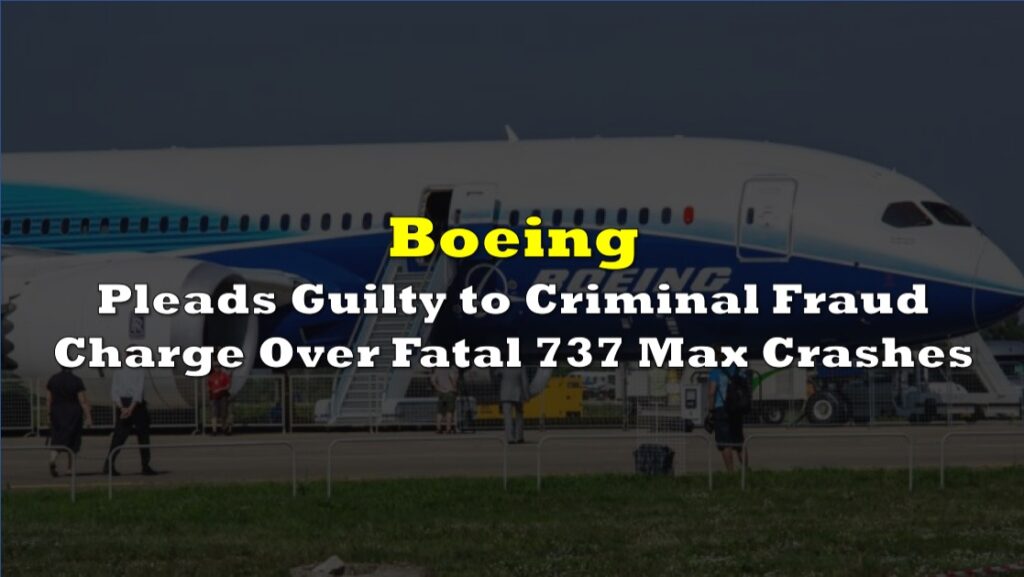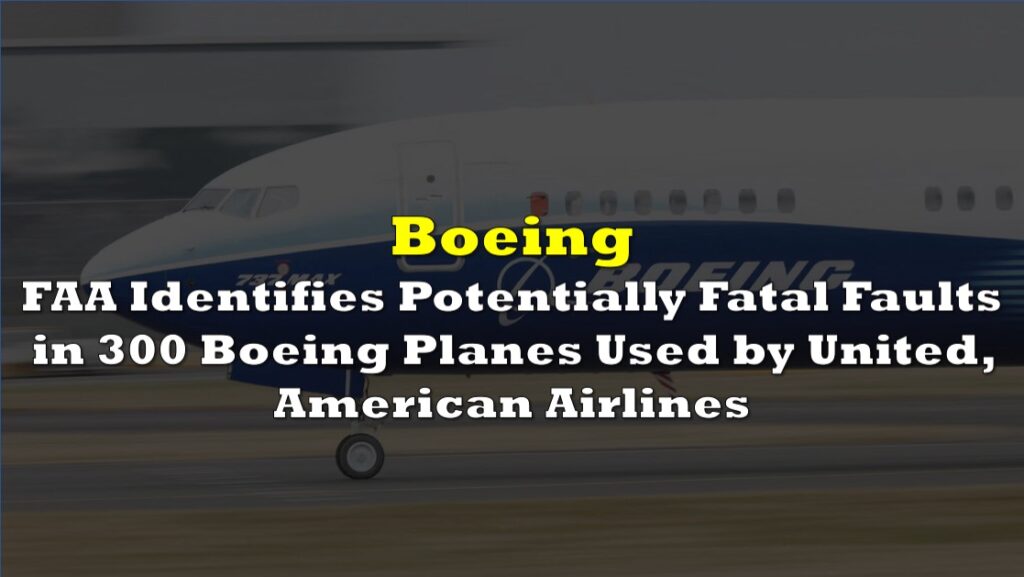Boeing (NYSE: BA) has agreed to acquire Spirit AeroSystems (NYSE: SPR) for more than $4 billion, a move aimed at addressing the ongoing safety and quality issues that have plagued the U.S. planemaker. The acquisition, which ends months of negotiations, is valued at around $4.7 billion and is structured as an all-stock deal, according to sources familiar with the matter.
The boards of Boeing and Spirit met on Sunday to finalize the agreement, with the official announcement released on Monday. Boeing will pay $37.25 per share for Spirit, reflecting a premium over earlier discussions of $35.50 per share in cash.
This acquisition comes in the wake of significant safety concerns that have affected Boeing’s operations and reputation. On January 5, a door plug on a new 737 MAX 9 jet failed mid-air, exposing multiple safety and quality problems within Boeing’s production processes. This incident has led to a substantial slowdown in output and has had ripple effects across the global aviation industry.
Spirit AeroSystems, the manufacturer of the faulty door plug, was originally spun off from Boeing in 2005. The decision to re-acquire Spirit is seen as a step towards regaining control over the production and safety of critical aircraft components.
The deal, which is subject to regulatory approvals, will result in the breakup of Spirit AeroSystems. Some of Spirit’s assets will be acquired by French planemaker Airbus. The transaction will include the acquisition of these activities, with Airbus receiving $559 million in compensation from Spirit AeroSystems for a nominal fee of $1.00, subject to adjustments based on the final scope of the deal.
Sweetheart deal
This comes as Boeing faces federal legal challenges. The U.S. Department of Justice (DOJ) is set to charge Boeing with criminal fraud related to the 737 MAX crashes that resulted in 346 fatalities. The DOJ has given Boeing until the end of the week to decide whether to plead guilty or go to trial. This comes after Boeing violated a 2021 deferred-prosecution agreement intended to prevent further violations of U.S. fraud laws.
Attorney Paul Cassell, representing the crash victims’ families, criticized the proposed plea deal, calling it a “sweetheart deal” that does not adequately acknowledge Boeing’s role in the fatal crashes.
The families had requested a nearly $25 billion fine, with a substantial portion potentially allocated towards safety improvements. Instead, the DOJ is expected to seek an additional $243.6 million fine, doubling the amount already paid under the deferred-prosecution agreement.
Boeing CEO Dave Calhoun, who plans to step down later this year, stated, “By reintegrating Spirit, we can fully align our commercial production systems, including our Safety and Quality Management Systems, and our workforce to the same priorities, incentives, and outcomes – centered on safety and quality.”
Despite these intentions, Boeing’s challenges are far from over. The company continues to face production caps imposed by the Federal Aviation Administration (FAA) and a loss of market share to Airbus. The January incident and subsequent safety concerns have further eroded public trust in Boeing’s aircraft.
The deal is expected to close by mid-2025, and Boeing has emphasized its commitment to ensuring continuity of operations with its defense customers.
Boeing last traded at $187.00 on the NYSE.
Information for this story was found via Reuters, Forbes, ZeroHedge, and the sources mentioned. The author has no securities or affiliations related to the organizations discussed. Not a recommendation to buy or sell. Always do additional research and consult a professional before purchasing a security. The author holds no licenses.











